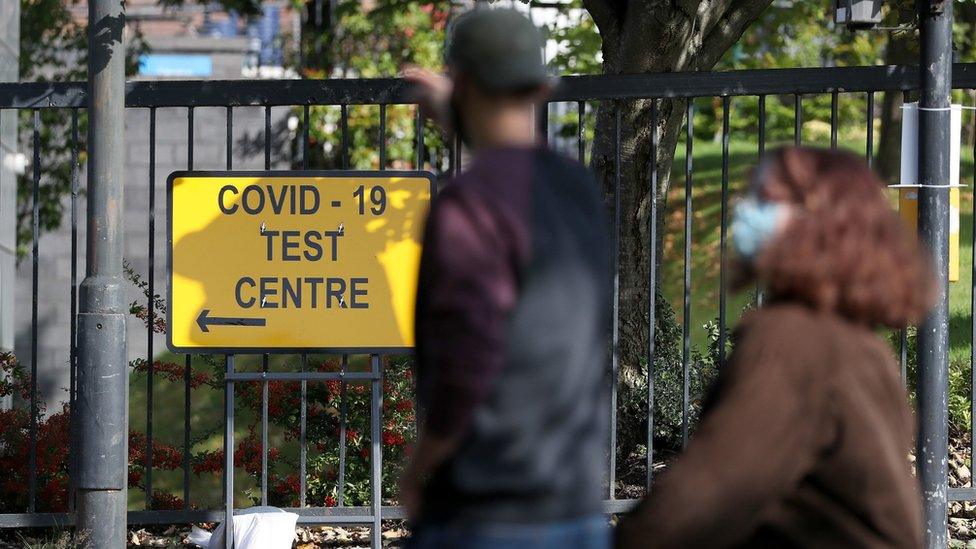Covid in Scotland: Indian community prepares for a restricted Diwali
- Published
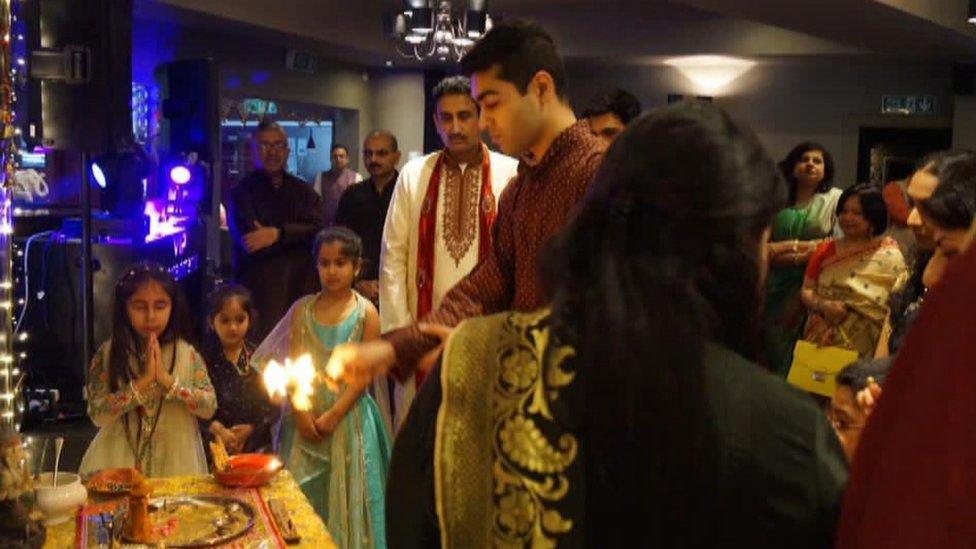
Diwali celebrations normally involve large parties and gatherings of families for prayers
Members of Scotland's Indian community are preparing to celebrate Diwali away from their families amid Covid restrictions on household gatherings.
The festival of light begins on Thursday and lasts for five days.
Dr Anil Sethi, a GP from Rutherglen, wrote to the Scottish government asking for students to be able to return home for religious festivals.
The government said it was working with universities to help students get home in December.
On Wednesday Universities Minister Richard Lochhead said students would be allowed to return home for Christmas if they return two negative Covid tests before travelling.
Dr Sethi had hoped additional testing would allow his son, who is studying medicine at Edinburgh University, to return home this week.
"It's not just me," he said. "I have spoken to many Indian families and they have the same feelings.
"This is the time of festivities in India - people are happy, elated, but now they are all feeling low and sad thinking even their own children can't come and join them.
"That was the reason I did write to the Scottish government to look into it and see if in some safe way we could have our own children in our own houses on that particular day to celebrate Diwali."
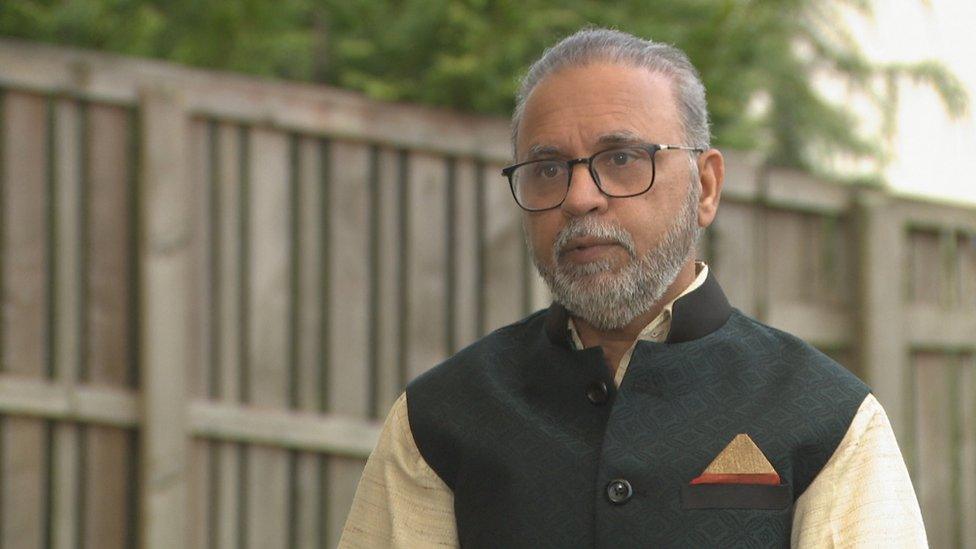
Dr Anil Sethi hoped that students would be allowed to return home during Diwali after testing and isolation
"In the past we used to have big parties - that is not possible this year," Dr Sethi said. "I absolutely understand it should be done safely. We don't want Covid to be spread."
Given the current restrictions, he will celebrate at home with his wife.
"We will decorate the house, we'll do the prayers and we'll have the children joining us online," Dr Sethi added.
'Mental health tsunami'
Diwali is celebrated by Hindus, Sikhs and Jains.
Dr Sandesh Gulhane, a Glasgow GP with a young family, has parents in London and he will miss seeing them during Diwali, the most important festival of his year.
But he is particularly concerned about the serious deterioration in the mental health he has witnessed in some of his patients since restrictions began, with men and those in BAME communities particularly at risk.
He fears that will worsen during cultural and religious festivals when people normally meet their friends and family.
"All throughout society we are seeing a huge problem and I would say we are on the tip of a tsunami of a mental health crisis going through this country, from children all the way up to elderly patients," Dr Gulhane said.
"What I'd really like is for the importance of these festivals like [the Muslim festival] Eid and Diwali to be recognised and if special dispensation can't be made for these events to have that discussion, to be honest," Dr Gulhane said.
"Don't make me feel like a second class citizen. Don't make me feel as if my religious events aren't important.
"Discuss why they are important and say this is why we can't celebrate it but don't have an exception for Christmas just because it's Christmas. Have it done on exactly the same level in terms of conditions that we're doing for Eid and Diwali."
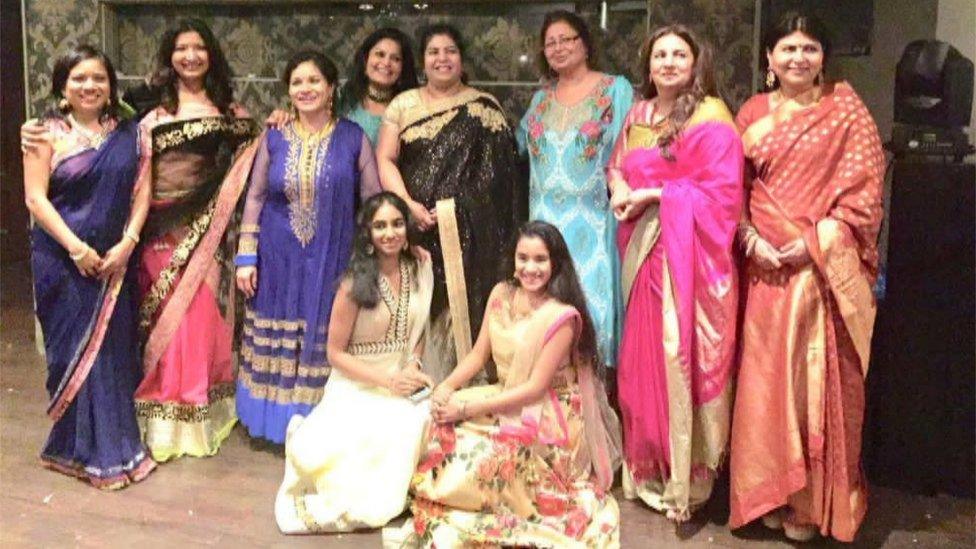
Dr Anil Sethi and his wife will celebrate at home this year but will not be able to hold parties as usual
The Scottish government, external told the BBC that the restrictions were essential.
Communities secretary Aileen Campbell said: "Faith is an important part of many people's lives and we know that the ability to come together to celebrate festivals, such as Diwali, is cherished by families across Scotland.
"Unfortunately, just as with Easter, Passover and Eid, the public health measures to suppress coronavirus mean that communities will be unable to come together to celebrate Diwali as they normally would. I know this will disappoint many, but these restrictions are vital to save lives and to protect our NHS.
"While none of us should be visiting each other's homes just now or travelling in or out of level three areas other than for limited essential reasons, you can travel to your usual place of worship if neither it, nor you, are in a level four area.
"Diwali can, of course, be celebrated in your own established household and, within guidelines, in places of worship."


- Published5 August 2020
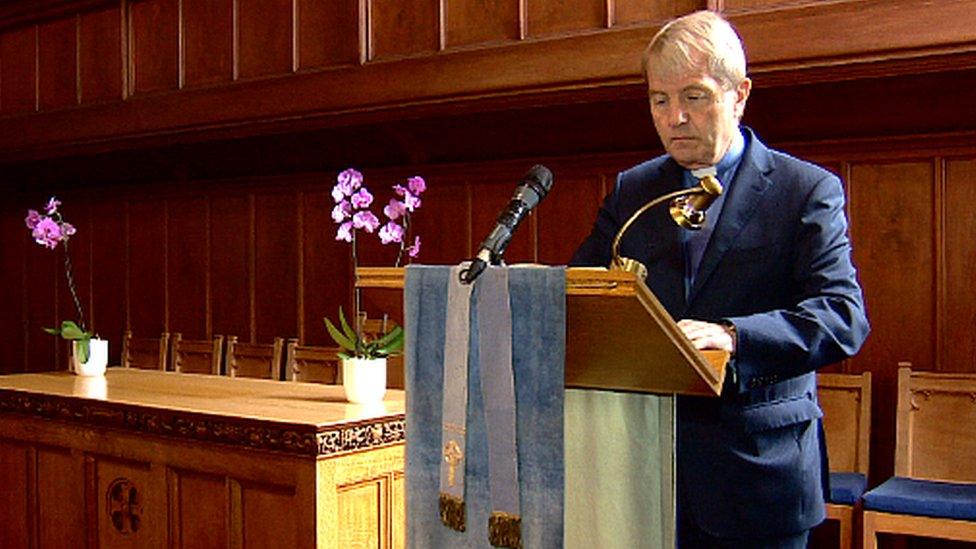
- Published9 November 2020
